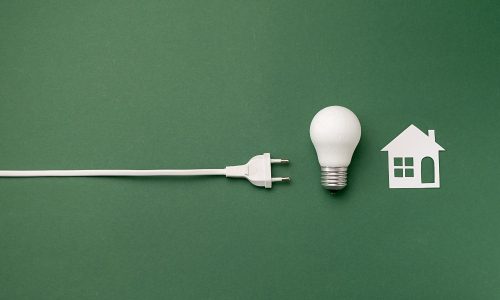At CEDIA Expo 2022, the topic of smart energy management was a roiling undercurrent of discussion. Fueled by growing government demands for increasing resiliency and energy efficiency in buildings and coinciding with the landfall of Hurricane Ian in Florida—a major market for the integration industry—it seemed difficult to avoid the topic while navigating the floor this past September.
It turns out that interest isn’t just related to professionals and government officials. Consumers too, perhaps spurred by discussions around the topic, are becoming more invested in smart energy devices. Once a focus of comfort, such as with smart thermostats, consumers are now gravitating towards these products for their energy savings as well, according to a new Parks Associates whitepaper.
Almost one third of consumers are planning to buy smart energy devices within the next six months with smart light bulbs (32%), smart plugs (30%), and smart thermostats (29%) being the top picks.
“Parks Associates research shows 45% of broadband households made energy-saving renovations or added major energy devices to their households in 2021, which is an all-time high,” said Elizabeth Parks, President and CMO, Parks Associates.
“Consumers are more aware of energy in general as costs continue to rise and as tools such as smart home energy devices and solutions become more available that allow them to track their consumption and make informed decisions on their energy usage.”
Could Smart Energy Offer Business Opportunities Between Utilities and Integrators?
Titled Next Frontier of Smart Energy Management, the whitepaper was developed in partnership with SmartThings and aims to address how connected devices are making energy management and advanced home controls a reality.
At the same time, the paper explores the implications for utilities, device and electric vehicle (EV) manufacturers, solar and HVAC companies, and home and multifamily builders.
According to Parks Associates, however, utilities and energy providers aim to gain significantly for this trend, citing four key benefits when integrating with smart home energy solutions:
- Increased consumer engagement with energy management programs.
- Facilitation of smart product integration in demand response programs.
- Increased adoption of smart products for use in energy management,
- Increased program awareness through cross-marketing efforts.
“As utilities move into the next stage of energy services, simplifying the architecture and complexity will be critical,” Parks said. “These companies have an excellent opportunity to establish their status as the trusted energy advisor for consumers, informing their decisions on the products and services they will adopt and use to monitor and manage their energy consumption.”
Likewise, this presents a potential opportunity for integrators to position themselves as key facilitators of these smart energy interactions with utilities and homebuilders. According to the whitepaper, with consumer usability of the products no longer an issue, the next step in success is enabling a unified experience to the consumer, a task professional integrators are all too accustomed with providing. It’s just a matter of learning the associated hardware, which manufacturers like Savant and Schneider Electric are already providing support for among interested dealers.
To request more data or an interview, please contact Rosey Sera at [email protected], 972.996.0233.







